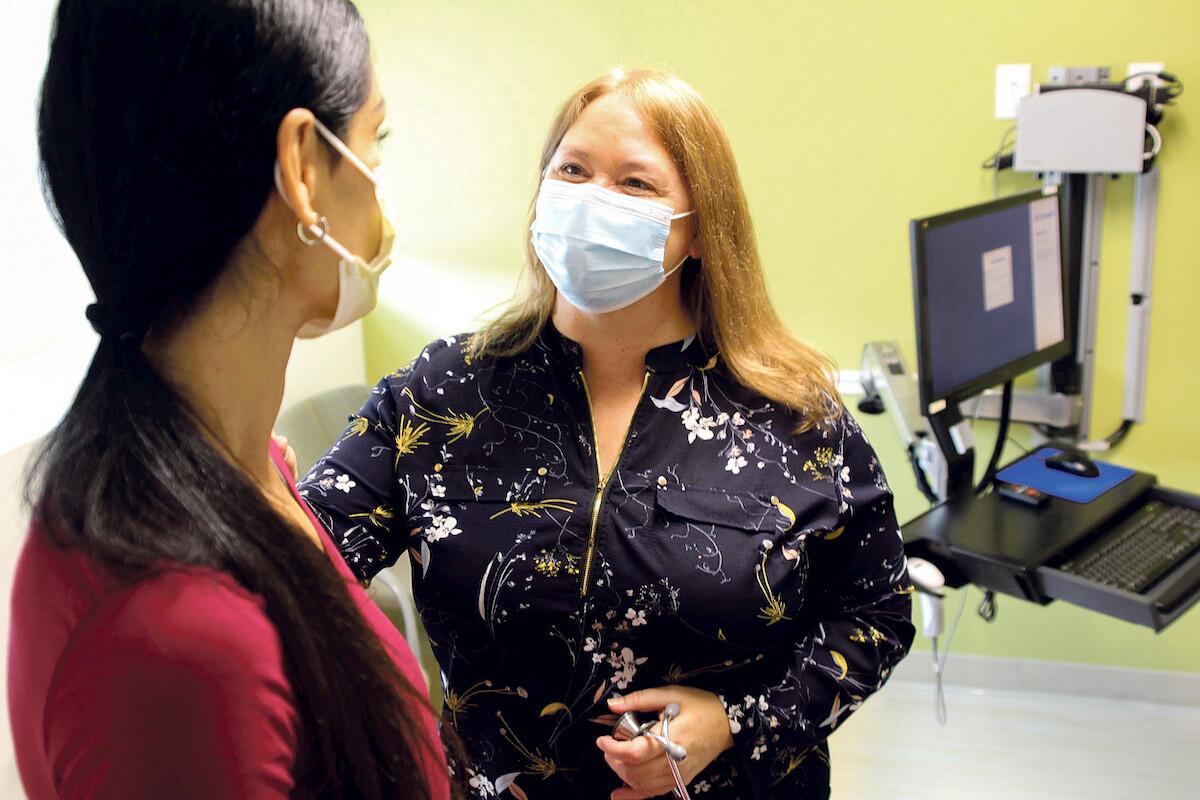Women, don’t delay your health screenings

- Share via
Women often take on the role of caregivers in our society. Unfortunately, they often neglect their own healthcare needs in the process. The pandemic only made things worse as many women postponed important health screenings in 2020 and into 2021 because of safety concerns.
A 2020 study by Epic Health Research Network found that U.S. preventive breast and cervical cancer screenings declined by 94% following the declaration of the COVID-19 national emergency. Between March 15 and June 16, 2020, 285,000 breast exams and 40,000 cervical exams were missed compared to historical averages, a study update found. It’s a pattern UCI Health internist Dr. Lauri Seymour has seen in her primary care practice.
“Most people did not come to the office in 2020; we did mostly telehealth visits,” says Seymour, who specializes in women’s health and preventive care. Once vaccines became widely available, people felt more comfortable coming in. But they are arriving with long lists of health checks that need to be done, including mammograms and other delayed screenings.
Top health concerns
Seymour has three main areas of concern:
• Breast health. The drop in mammography screenings over the last 18 months hasn’t helped women’s breast health. “I’m seeing a fair number of abnormal mammograms come through leading to an uptick in breast cancer diagnoses,” she says.
• Weight gain. Because people have been so sedentary during the pandemic and gained weight, they are encountering related health problems, she says. “High cholesterol, high blood sugar levels and high blood pressure go hand-in-hand with being overweight. People whose labs or test results were normal two years ago are coming back with abnormal results, particularly with cholesterol levels and liver function.”
• Mental health issues. The pandemic also has taken a toll on people’s mental health but patients who are trying to address their stress and anxiety are encountering long waits to get an appointment with a mental health professional. Primary care physicians can also help. “We are able to prescribe medications for anxiety, depression and insomnia. We can also advise them on vitamins and other natural remedies to help them feel better.”
Must-have screenings for women
Seymour, who sees patients in Costa Mesa and also will be practicing at UCI Health -- Newport Beach MacArthur, recommends the following:
• A yearly physical. “Every time you see your physician, they should listen to your heart and lungs, check your blood pressure and weight, and ask about your mental health and your particular health concerns.” Patients over age 50 should get annual bloodwork, including a cholesterol panel. For healthy women in their 20s and 30s, bloodwork every three to five years is sufficient but they still need an annual physical.
• A well-woman exam. “Women can get their entire physical with us, including a cervical cancer screening and breast exam. I recommend cervical screenings every three years unless the patient has had an abnormal reading.” Any serious findings are immediately referred to a gynecologist.
• Yearly mammogram starting at age 40. “Breast cancer is very responsive to treatment when it’s caught in the early and middle stages.” For women ages 50 to 75 with an average risk of developing breast cancer, current guidelines call for a mammogram every two years.
• Chronic health conditions. Patients with high blood pressure, diabetes, auto-immune disease or other chronic health conditions need to come in more frequently to manage their symptoms effectively and keep complications at bay.
• Other screenings. Women are at higher risk for osteoporosis as they age. Women who are age 65 and older should get a bone density scan. Heart disease also presents differently in women. “If a patient has a family history of heart disease or has been diagnosed herself, it’s definitely important to keep up with regular heart screenings and risk-factor evaluations.”
“Getting the right screening and preventive care on schedule can help you stay healthier longer,” says Seymour, “You want to catch health issues at their earliest, most treatable point.”